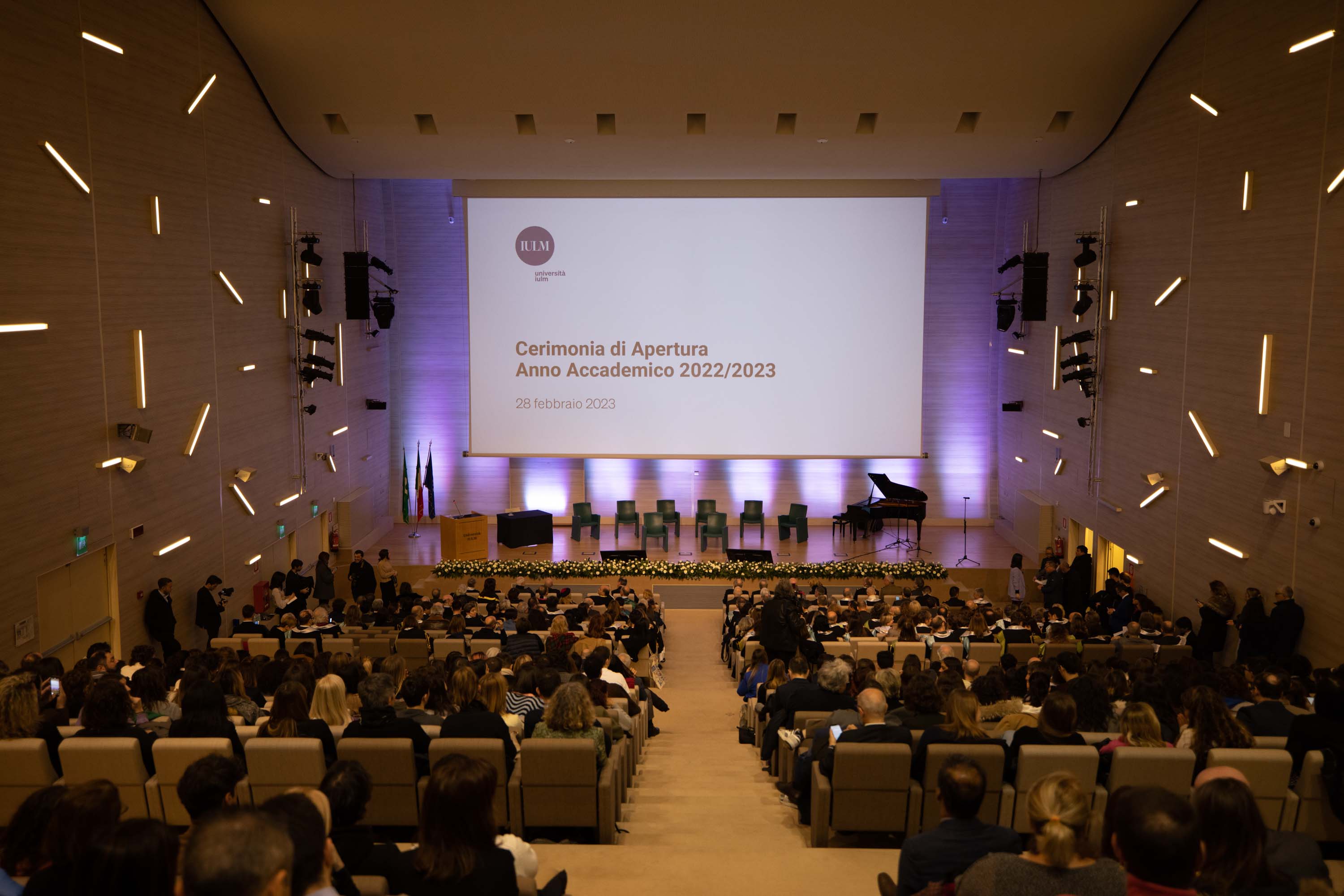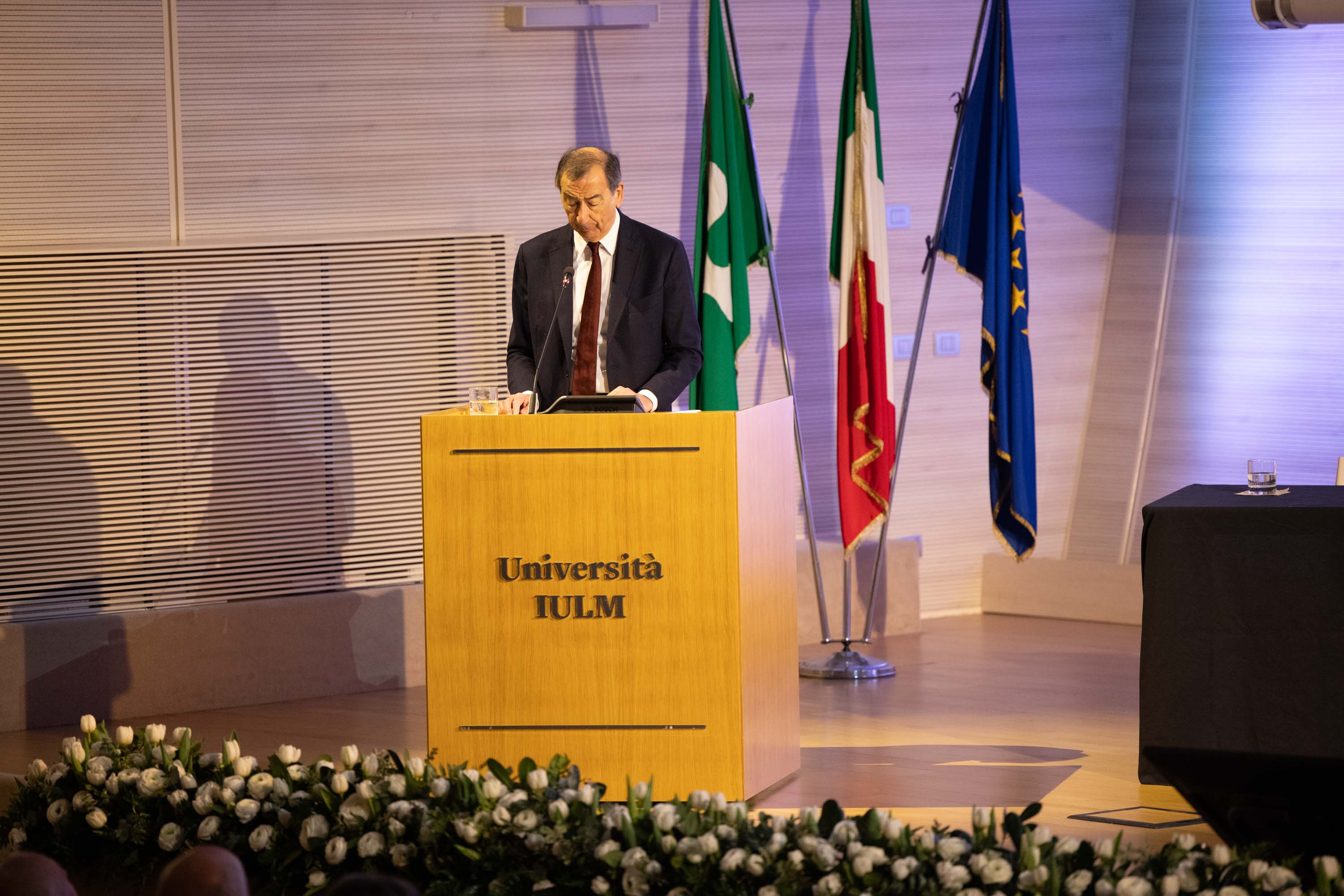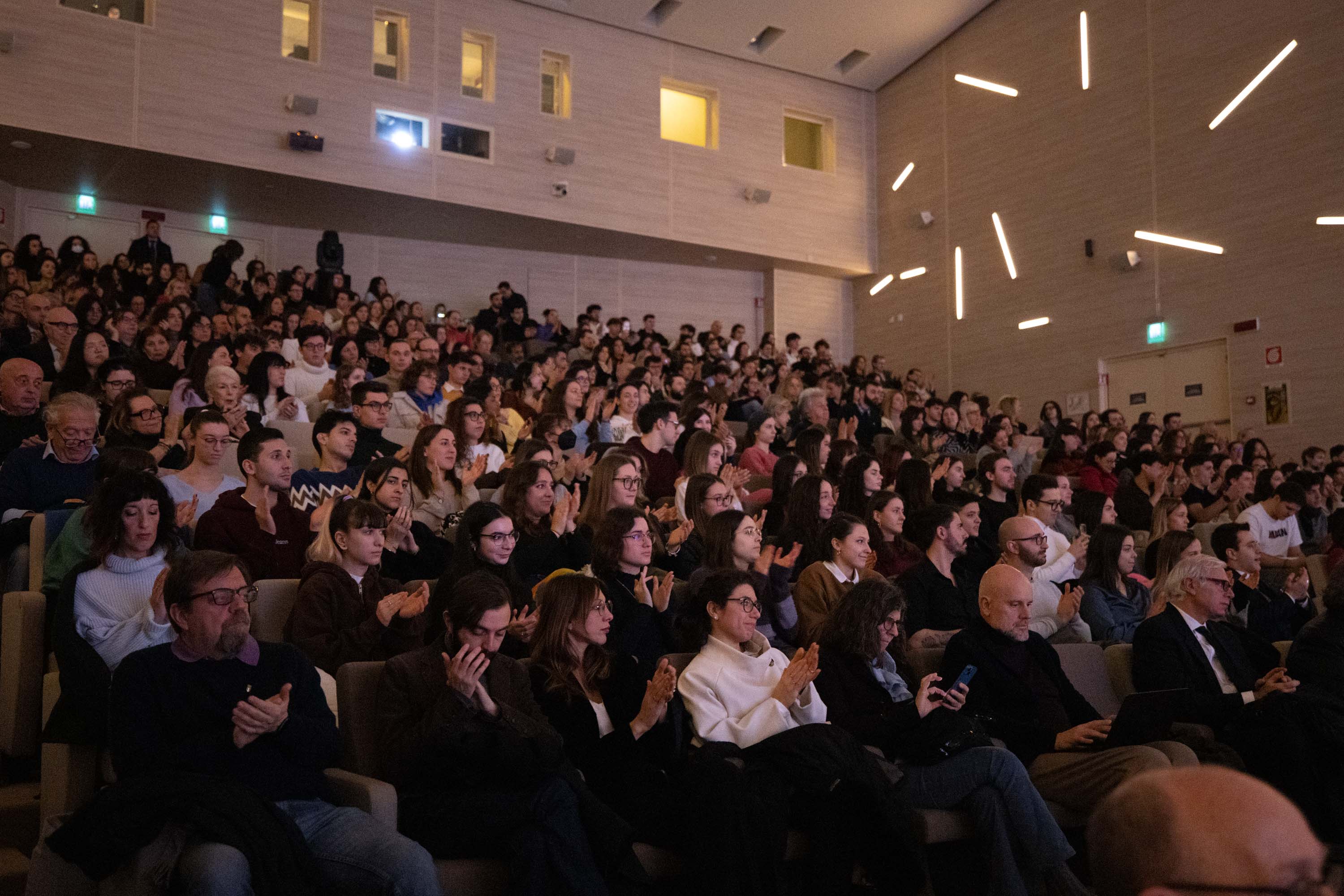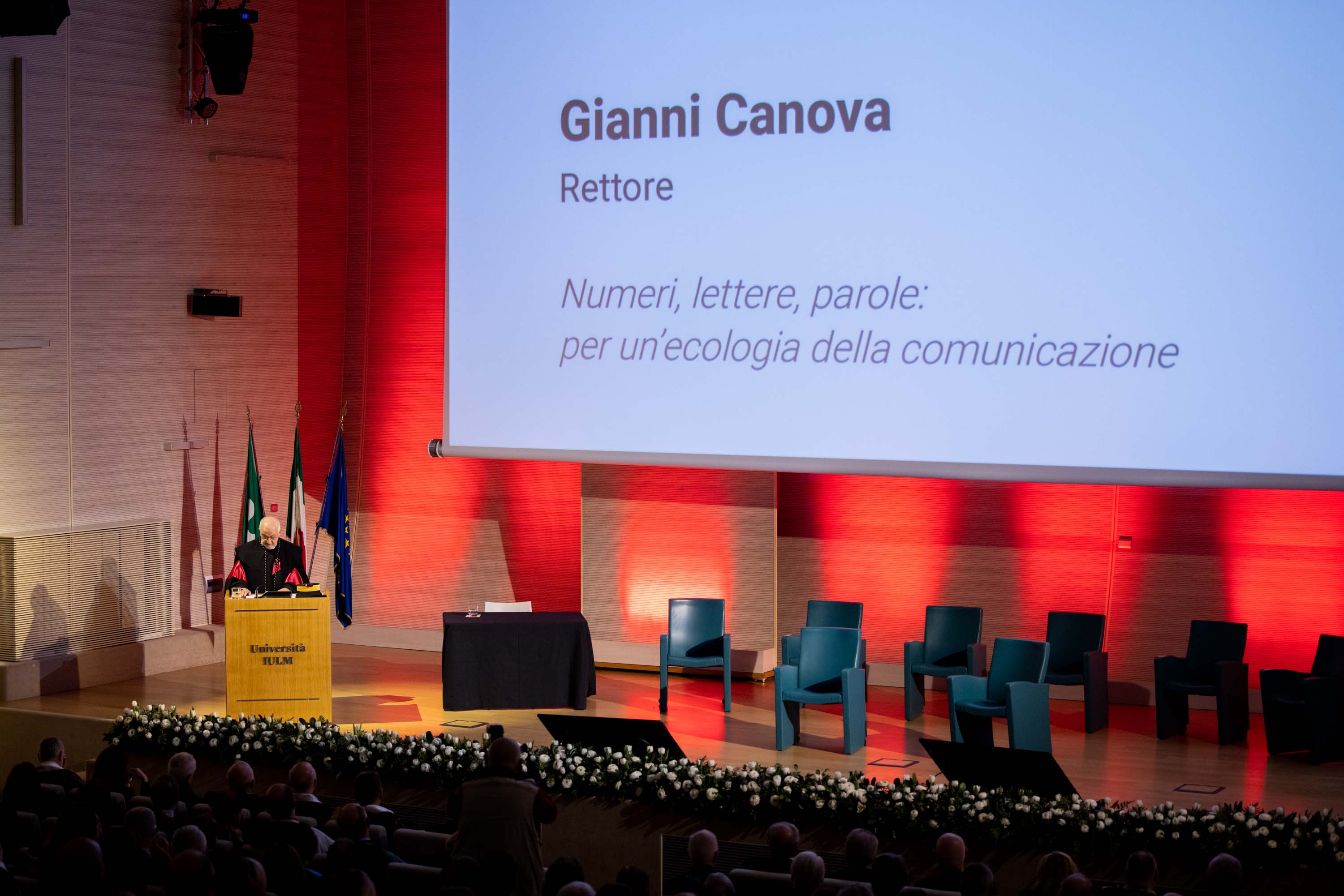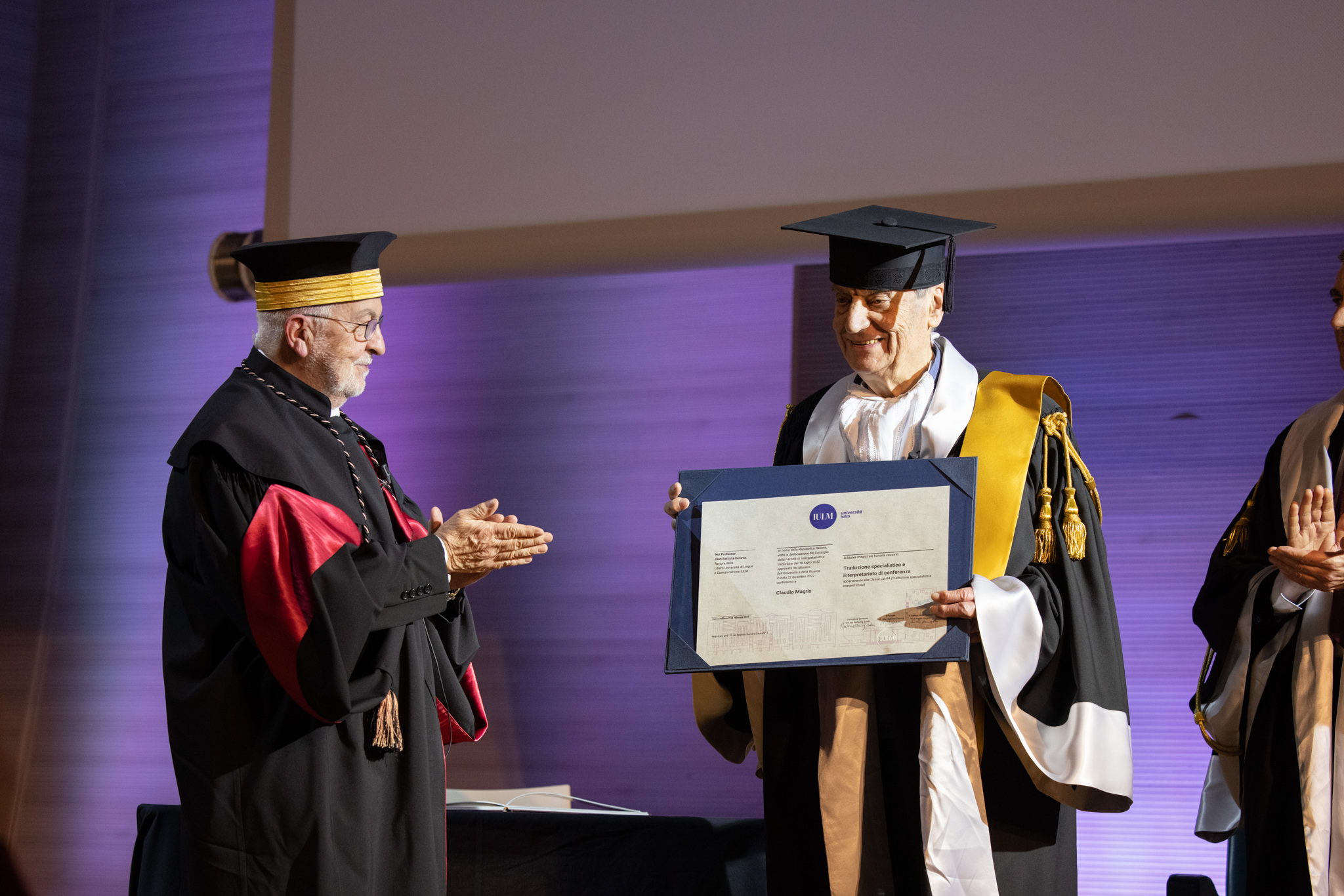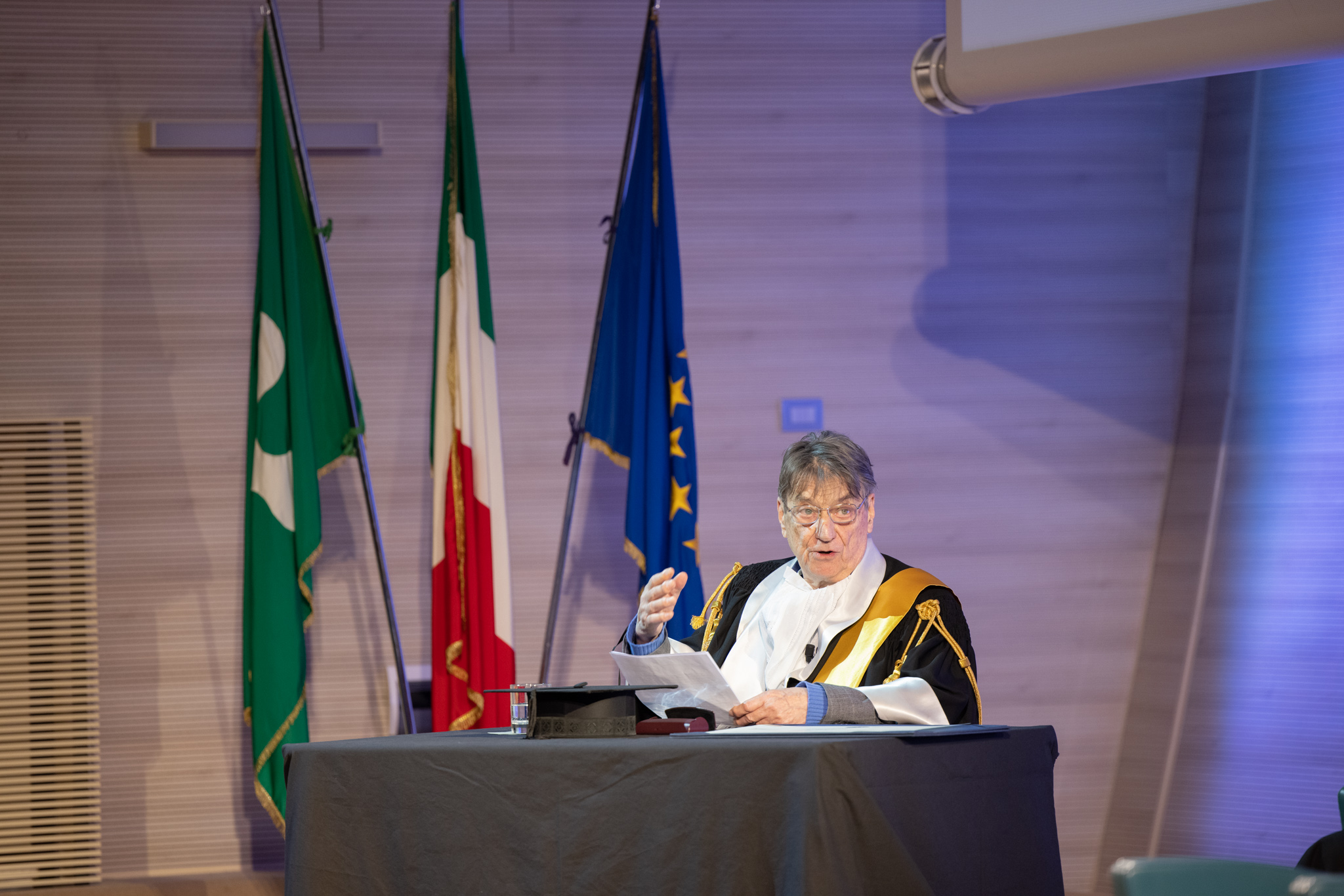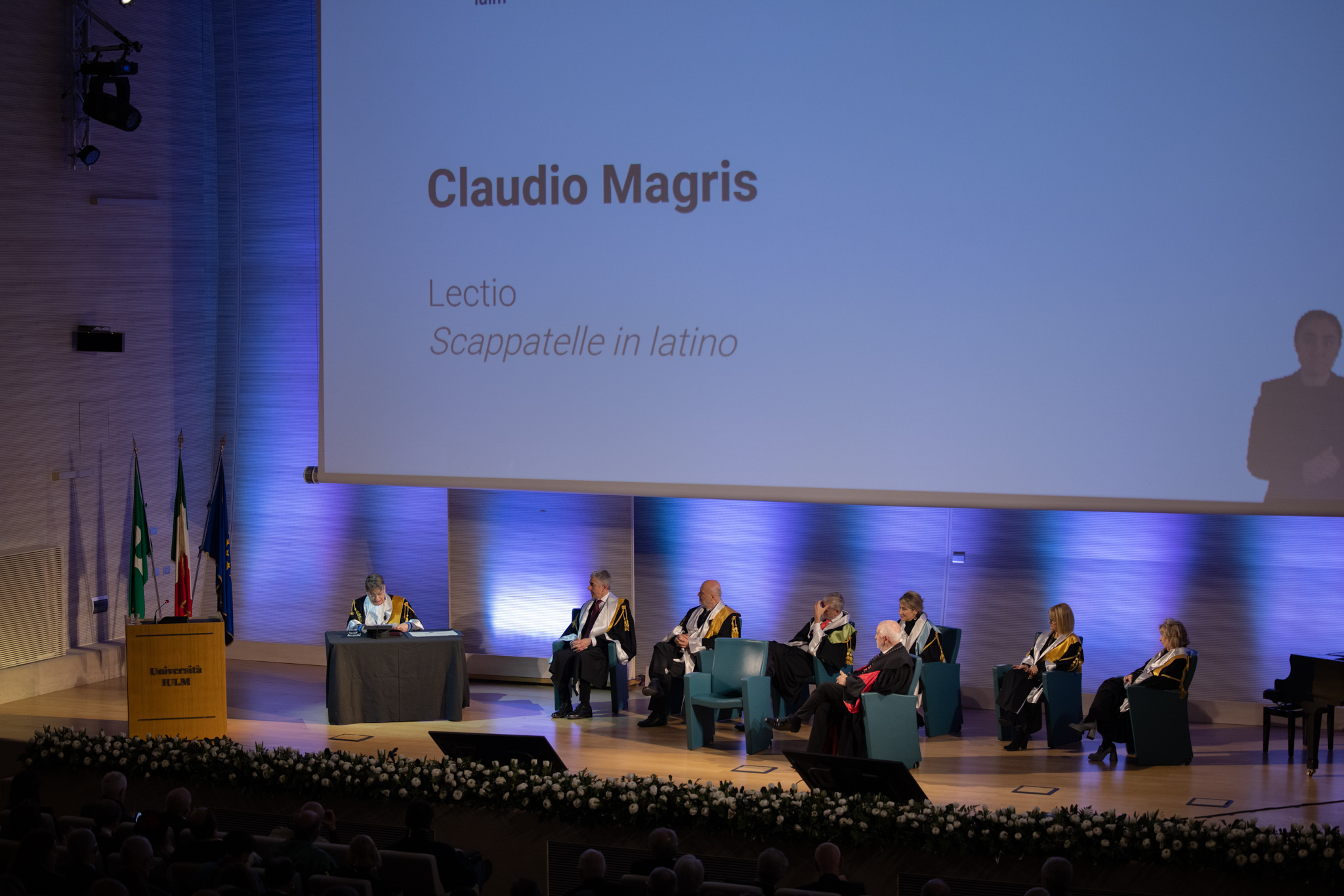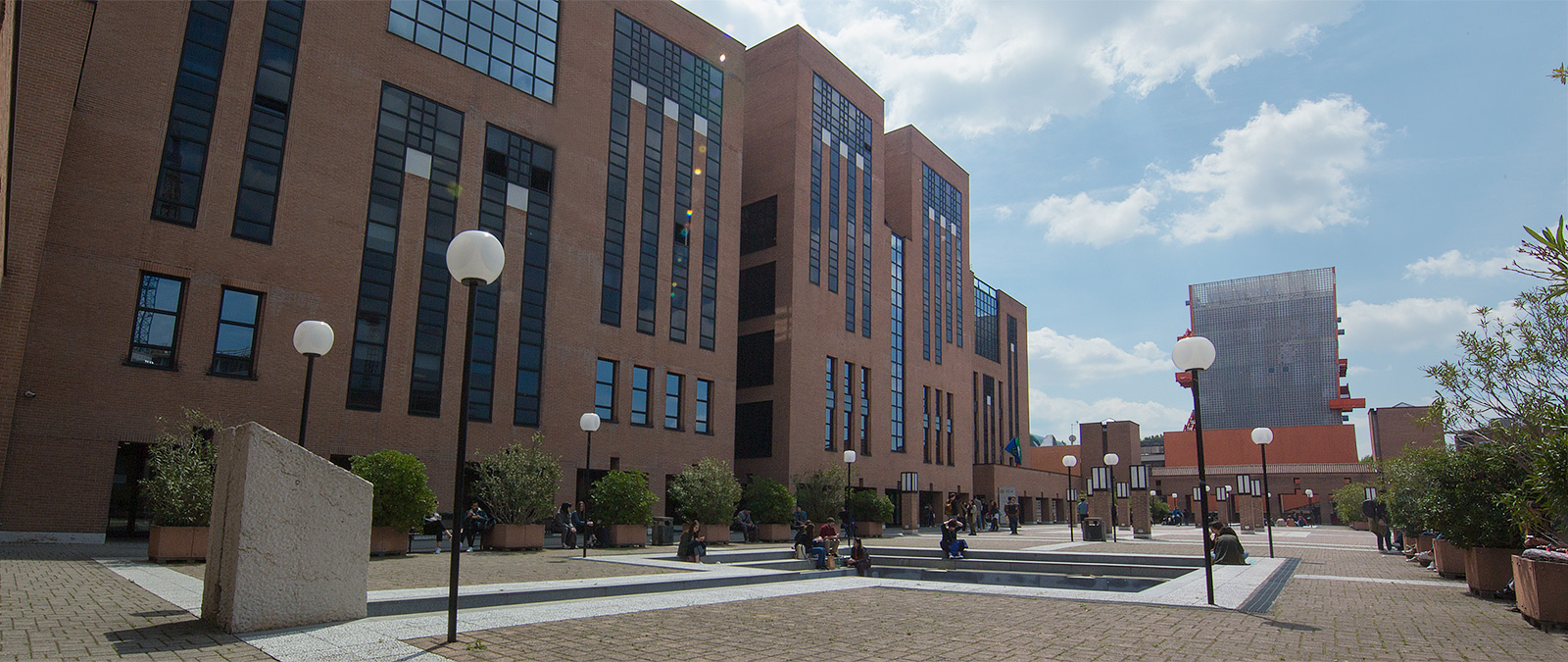
Opening Ceremony of the Academic Year 2022/2023
The 54th Academic Year of IULM University was officially inaugurated. The ceremony was opened with a greeting from the Mayor of Milan Beppe Sala - who recalled that IULM is the University in Milan and in Lombardy with the highest number of women lecturers and non-teaching staff, including the Director General - followed by a speech by the Chairman of the Board of Directors, Professor Giovanni Puglisi, and a report by the Rector, Professor Gianni Canova.
The ceremony was the occasion to confer the Honorary Degree in Specialised Translation and Conference Interpreting on Professor Claudio Magris, critic and historian of literature and culture, Germanist, novelist, playwright, columnist, translator, educator, cultural promoter, a true 'humanist' intellectual who crosses over into multiple genres of writing with originality and skill.
In the assessment that is drawn up by the Rector of each university at the inauguration of the academic year, Professor Gianni Canova chose not to cite the 'usual' numbers that are listed to the audience, but rather structured a discourse on how IULM University questions the effects produced by the communication ecosystem generated by the digital revolution. "An ecosystem that," the Rector explained, "along with many indisputable advantages, has also produced just as many disadvantages. With the difference that the advantages are immediately visible to everyone, while the disadvantages or inconveniences are more difficult to identify, are elusive, sometimes indecipherable, and only show themselves in the long term'.
'Much has been said in recent weeks,' Professor Canova continued, 'about the malaise that is rife among the younger generations. It has been attributed to universities that are too competitive, to families that are uncaring or distracted, to a society that generates performance anxiety".
"I believe," continued the Rector of IULM, "that in this epochal scenario the University has an extra mission, in addition to the historically consolidated ones of teaching and research. It is a mission that consists in making of itself the device capable of helping the girls and boys who attend it, but also the lecturers who teach there, and the people who work there, to make that leap of imagination that is necessary to break out of the binary logic, out of the aut aut aut of black and white, to break the atrophy of the imagination and to start thinking plural again, to discover new letters, new alphabets, and to repopulate the world of culture with the fascination of colours. We must have the strength to free the University from the dictatorship of quantity in order to rediscover the logic of quality, innovation and exploration'.
Rector Canova concluded: 'The university system must restore the trust that has been broken; repair the cracks that have opened. We must say forcefully that the university is not the disease, but the therapy for so many forms of youth discomfort. But to do so, to be credible, the university must question itself. As one of the most distinguished of our honorary graduates, Edgar Morin, has written, the university must be aware that it inoculates society with a culture that is not made for the temporary or ephemeral forms of the hic et nunc and yet is made to help citizens live out their hic et nunc destiny. While remaining faithful to its trans-secular mission, it must be able to develop a culture for modernity and contemporaneity. It is these that ask the university to problematise itself and to problematise the thought and knowledge that is formed in the universities'.
In his greeting, the President of the Board, Professor Giovanni Puglisi, also addressed the complexities of the university world and those who live it: 'We will only win the battle of life if we all stand together, young and old, students and teachers, each with their own role. It would be illusory and perhaps even arrogant to think we can win it alone or worse against each other. Tradition is not the cinerary urn of the past, but the fire that feeds the present, to build the future'.
The Representative of the students in the Academic Senate, Federico Fanales, then took the floor: he did not hide his emotion at speaking for the first time in front of such a large and varied audience and exhorted his comrades: 'when the burden of life becomes unbearable, seek the comfort of a friend, the caress of a parent, and do not keep this malaise inside you. Talk about it, vent it out, the people who love you will always be ready to bear the burden of problems with you'.
Over the past five years, IULM University has posted a +34.5% increase in Bachelor's degree courses from the 2017/18 academic year to the current one, and a +57.5% increase in Master's degree courses. This has risen from 4,387 enrolled Bachelor's degree courses in 2017/18 (4,734 in 2018/19, 5,111 in 2019/20, 5,835 in 2020/21, 5,644 in 2021/22) to 5,902 in the 2022/23 academic year and from 833 enrolled and enrolled in Master's degrees in 2017/18 (974, 1,143, 1,230, 1,313) to 1,312 this year. For a total enrolment that now stands at 7,214 students (up from 5,220 in 2017/18).
Reciting the Laudatio for Professor Magris was the Pro-Rector for Transdisciplinarity, Professor Mauro Ceruti, who recalled what 'has always preoccupied Claudio Magris: not so much succeeding in producing a masterpiece, and he has produced many, as being abandoned, in handling the power of words, by the breath of the spirit, by a sober and humanistic reason, intransigent and vigilant, in the face of the irruptions or latent manifestations of evil in life and history. Hence his constant reflection on what most threatens life and history - war - and on what can protect today's and future generations from that catastrophe: literature and Europe'.
In his Lectio, entitled Scappatelle in latino, a trip down memory lane in which he evoked people, atmospheres and events from which he drew inspiration, Claudio Magris said he was "particularly honoured to receive this degree from IULM: a university that is alive and true in the most authentic and immediate sense of the term" and recalled Giovanni Vittorio Amoretti (1/5/1892 - 15/11/1988) one of the first and most important Germanists in Italy who taught German Language and Literature at IULM University.
BIOGRAPHY
Claudio Magris was born in Trieste on 10 April 1939. He studied at the University of Turin and at various German universities. After graduating from the University of Turin in German Language and Literature (1962), he became full professor of German Language and Literature at the University of Trieste (1968-70), Turin (1970-1978) and Trieste again (from 1978 until 2006); director of the Literary Languages and Scientific Languages sector of the Interdisciplinary Laboratory of SISSA, Miramare-Trieste (since 1990); Senator of the Republic in the XII Legislature (1994-1996). In the academic year 2001-2002 he held the Chaire Européenne du Collège de France; in 2007 Honorary Professor at the University of Copenhagen. He has lectured at many European and American universities.
He was among the first scholars to deal with Jewish authors in Central European literature.
His work as a novelist includes Danubio (1986, Bagutta Prize), Microcosmi (1997, Strega Prize), Alla cieca (2005), Non luogo a procedere (2015). Professor Magris' essays include Itaca e oltre (1982), Utopia e disincanto (1999) and La storia non è finita (2006). He has collaborated with Il Corriere della Sera for over fifty years.
